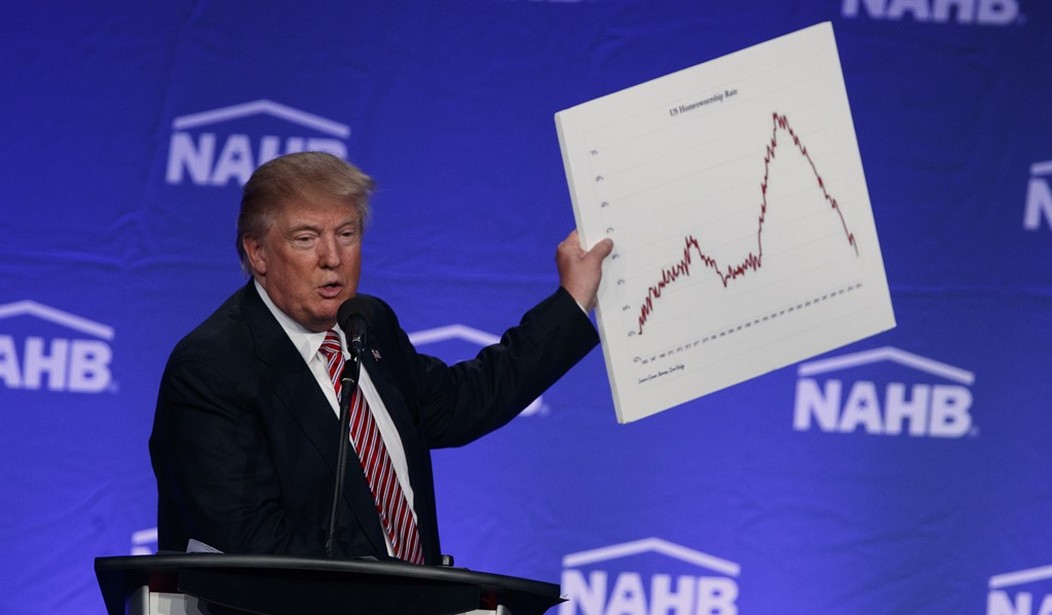But calling themselves African-Americans resonates powerfully with millions of black Americans, because many who were born in contemporary America are descended from men and women who were brought here as slaves. They're unique among Americans.
They often take little comfort in the stories of our Founding Fathers. Slaves were counted by the founders as three-fifths of a person, a formula devised to reduce the representation of the slave states in Congress. But the very fact of the formula is understandably deeply resented by black Americans today.
When blacks call themselves African-Americans, they honor an idealized continent, not one of slave catchers who captured and sold fellow Africans to white slave dealers. Their descendants often wax nostalgia for freedoms they imagine exist where none often do. That's understandable, too, but it glosses over the vast and painful changes wrought since the Civil War, the transformational civil rights movement, and the work of Martin Luther King Jr. and others through President Barack Obama. Hyphenating their identity keeps them from focusing on accomplishments and opportunities as Americans.
The hard times blacks have endured in coming into full human identity in the United States continues to fuel the Black Lives Matter movement. It's a curious focus on the discarded past, when we've had eight years of a black president who takes pride in his own ancestry -- a black father and a white mother. The president recalled this with no little appreciation in a speech in Philadelphia, Pennsylvania, in 2008, celebrating his multiracial heritage:
Recommended
"I was raised with the help of a white grandfather who survived a Depression to serve in Patton's army during World War II and a white grandmother who worked on a bomber assembly line at Fort Leavenworth while he was overseas. I've gone to some of the best schools in America and lived in one of the world's poorest nations. I am married to a black American who carries within her the blood of slaves and slaveowners -- an inheritance we pass on to our two precious daughters. I have brothers, sisters, nieces, nephews, uncles and cousins, of every race and every hue, scattered across three continents, and for as long as I live, I will never forget that in no other country on Earth is my story even possible."
This was an answer to the Rev. Jeremiah Wright, his former longtime pastor in Chicago, Illinois, whose sermons exploded with rage and venom, such as his fiery plea, "God damn America!" The man who would be president denounced his pastor's words as "not only wrong but divisive, divisive at a time when we need unity."
Obama offered hope that he would "continue the long march of those who came before us, a march for a more just, more equal, more free, more caring and more prosperous America." His election would be the next step on that long march. Unfortunately, the stirring words hid a multitude of continuing and increasing resentments not confined to race. He referred to one of these groups in his speech to the Democratic National Convention, saying, "There are pockets of America that never recovered from factory closures; men who took pride in hard work and providing for their families who now feel forgotten; parents who wonder whether their kids will have the same opportunities that we had."
Many of these men would become Donald Trump supporters, the passionately angry Rodney Dangerfield voters who "don't get no respect."
There are deeper divisions, revealed in celebrity endorsement speeches at the conventions characterized by Michael Wolff in the Hollywood Reporter as "'Duck Dynasty' vs. Lena Dunham." Lena Dunham, who endorsed Hillary Clinton, is the creator and star of the HBO series "Girls," and Willie Robertson, who endorsed the Donald, is a star of "Duck Dynasty."
"In this instance, Dunham represented a cosmopolitan, millennial, pansexual, women-focused view, abhorrent to a significant part of the country," he writes, "and Robertson a nativist, older, gun-associated, military-inclined, white-male-focused view, abhorrent to the Dunham part."
Wolff's point is that in a country that requires a unity of purpose, both figures represent a world divided not only by politics but also by sensibility, cultural experience and media tastes, and neither candidate has a clue how to reach out to the other. These are hardly black-white polarities, and they tell a complicated postmodern story of disunity that will continue to simmer no matter who is elected in November. It's a story about contemporary America deeply divided by considerably more than a hyphen, more than race.

























Join the conversation as a VIP Member